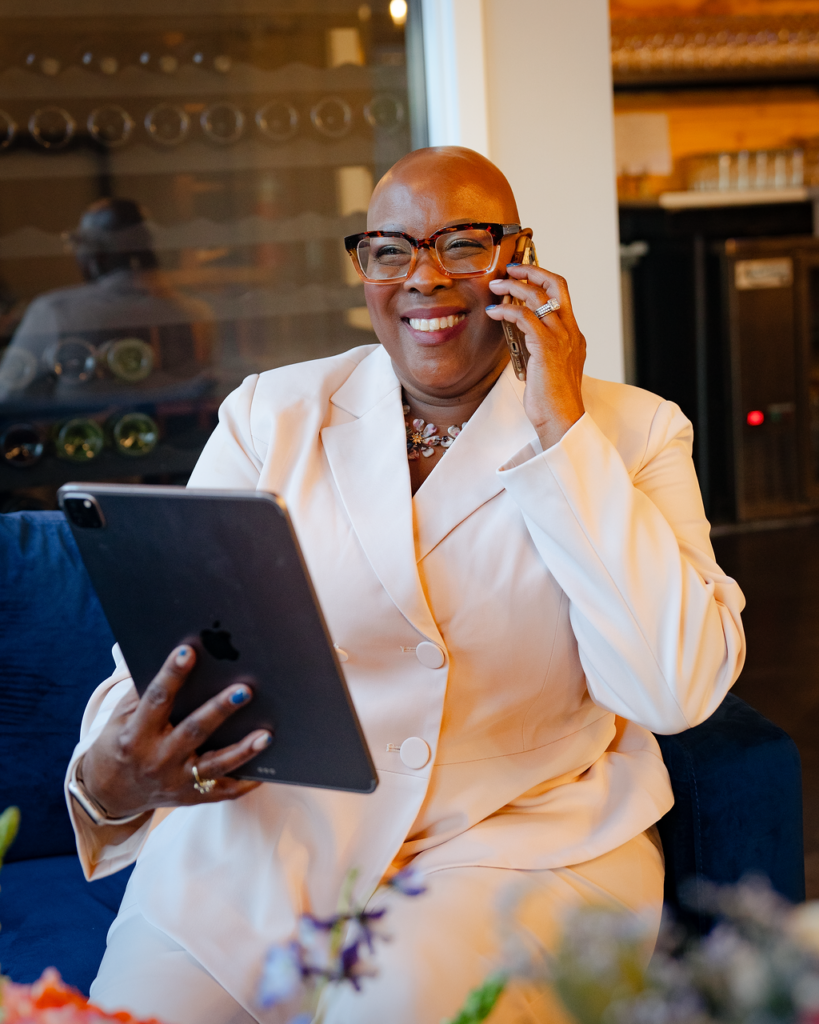
By Chloris Lewis, Owner, Lead Designer & Planner of C. Lewis Events
One of the most common questions I hear from couples when seeking wedding services is: “Can my wedding coordinator also help set up my reception decor?”
It’s a great question — and an important one to clarify, because understanding the difference between wedding coordination and wedding design helps you build the right vendor team and set realistic expectations for your big day.
Let’s break it down.
What is a Wedding Coordination ( or Month- of Coordinator)
A wedding coordinator — sometimes called a month-of coordinator or wedding day manager — ensures that the wedding day itself runs smoothly and according to plan. By the time your wedding day arrives, most couples have already made most (if not all) of your design and vendor decisions. Your coordinator steps in to orchestrate everything you’ve carefully planned — so that you (and your loved ones) can relax and be fully present.
At C. Lewis Wedding & Event Design, here’s exactly what my coordination team and I handle:
- Vendor communication and confirmation: Roughly 6-8- weeks prior to your wedding, we begin reaching out to all of your vendors to confirm arrival times, responsibilities, and final logistics. In the final weeks leading up to your wedding, I have what I call a marathon meeting with you. During this meeting, we discuss all of the logics leading up to the wedding day. We don’t want any surprises popping up on your big day! This meeting also gives me the chance to make sure my team is completely in sync, knows exactly what’s most important to you, and is ready to take care of every detail so you can simply enjoy the moment.
- Detailed timeline creation: We build a comprehensive wedding day timeline that outlines every key moment — from hair and makeup start times, to vendor arrivals, ceremony cues, and reception transitions.
- Venue walkthrough and logistics planning: We coordinate with your venue to confirm layout, parking, load-in/load-out times, and any venue-specific rules.
- Ceremony and reception management: We oversee your ceremony processional and recessional, ensure the reception flows seamlessly (grand entrance, dinner, speeches, first dances, etc.), and troubleshoot behind the scenes so you don’t have to.
- Guest relations: My team and I serve as the main point of contact for your guests on the wedding day — answering questions, directing them where to go, and helping with any unforeseen needs.
- Vendor management on site: We liaise with the DJ or band to cue music for the ceremony and reception events; we work closely with your caterer, photographer, videographer, and other vendors to keep everything on schedule.
- Personal item management: We make sure personal items like your guest book, marriage license, gifts, and keepsakes are accounted for and safely packed up at the end of the night.
What we do not do as coordinators is handle decor set-up and tear-down. Setting up your reception table and room decor, ceremony installations, or intricate design details falls under the role of a wedding designer or event design team — not your coordinator. Our job is to make sure those design elements are in place on time, but not to physically install them ourselves.
What is a Wedding Designer?
A wedding designer primarily focuses entirely on the aesthetic and ambiance of your wedding day. While coordination is about execution and logistics, design is about the visual storytelling and curating an environment that reflects your personality and love story.
As a wedding designer, my role includes:
- Creating your wedding’s overall look and feel (mood boards, color palettes, and style concepts)
- Sourcing and providing decor elements such as florals, linens, specialty rentals, custom signage, and table settings
- Designing floor plans and layout schematics that balance beauty and function
- Producing and setting up all visual elements on the wedding day (and removing them afterward)
Think of it like this: Your designer builds the atmosphere and visuals, your coordinator ensures the experience flows seamlessly. Both roles are essential — but they require very different expertise and responsibilities.
Why This Difference Matters
Think of coordination as the heartbeat of the day and design as the soul of your celebration.
- Coordination is about structure, communication, and flow.
- Design is about creativity, aesthetics, and atmosphere.
Hiring a coordinator without a designer means you’ll need to plan, source, and set up all your decor yourself (or hire vendors separately for each item). Hiring a designer without a coordinator means the beauty might be there—but no one is managing the behind-the-scenes to ensure it all goes as planned.
At C. Lewis Events, we offer a comprehensive collection that includes both wedding coordination and full event design. This is where we truly shine. We are proud to provide a well-rounded team that includes both coordination assistants and design assistants who are trained to handle every layer of your celebration—from the timeline to the tables designs . This integrated approach means your day flows beautifully and looks even better.
When you book our Wedding Day Management and Design package, you’re not only getting structure and style—you’re getting a seamless experience that reflects you from start to finish.
If you’re still unsure which services you need, let’s chat. I’d be happy to walk through your vision and help guide you toward the best support for your special day.
Because when it comes to weddings, you deserve both peace of mind and a celebration that feels like you.